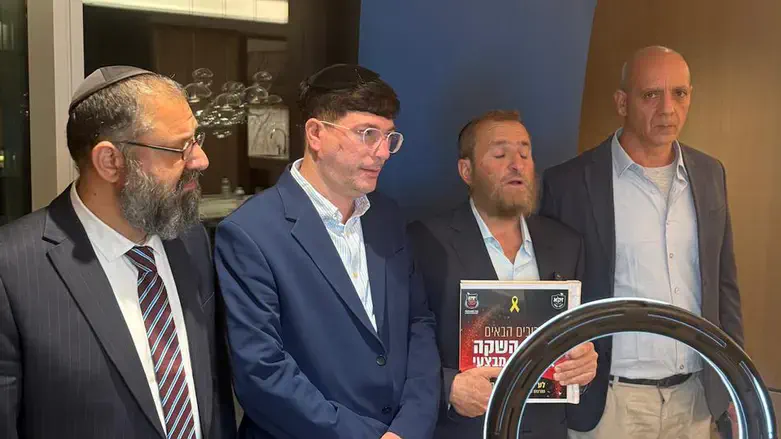
I write these words as a father who has experienced unimaginable loss—and as a Jew deeply troubled by what I see unfolding around us.
My daughter, Shani Louk, was murdered by Hamas at the Nova music festival on October 7th. Her death, and the brutal way the murder was exploited by her killers, made her one of the most widely recognized victims of that dark day—the deadliest for the Jewish people since the Holocaust. The image of her body, paraded through the streets of Gaza, seared itself into the world’s conscience. Since that moment, I have tried to carry her memory as a light against the darkness.
When a major international press agency chose that haunting image as its photo of the year, many were shocked. But despite the pain it brings me, I supported their decision. The world needs to see what Hamas did to my daughter. The world must not look away from the cruelty of terrorism.
One of the people who has stood by our family since the very beginning is Rabbi Shmuley Boteach. He has been a source of strength and support—tirelessly speaking out on behalf of Israel, advocating for the families of victims and hostages, and confronting antisemitism around the world. His efforts have made him a leading voice for the Jewish people in the West. It has also made him a target of hatred and threats against both him and his family.
Last year, Rabbi Shmuley helped organize a memorial event in New York City, where his friend Robert F. Kennedy Jr. joined us to dedicate a Torah in Shani’s memory. Thousands came to honor her life.
So it was deeply painful and shocking when, on the first anniversary of Shani’s burial, a quiet, respectful gathering of only five people organised by Rabbi Shmuley was met with hostility. The management company for the building where the small gathering took place objected to five people gathering on the 18th floor for this private commemoration. This is a building known for housing prominent residents, one would expect such a distinguished building to show some basic decency and respect.
Instead of compassion, Rabbi Shmuley was confronted by a building manager, ignored by the manager's superiors, and threatened with legal action by the company’s attorney. Even a board member took it upon herself to lecture him about how a rabbi should behave.
I ask myself—how can this happen in New York City, home to over two million Jews? How can a memorial for a young woman murdered by terrorists be turned into a legal issue?
What happened that evening was not political. It was personal. A father was grieving. A friend offered him comfort. And a handful of people gathered to remember a beloved daughter. It was an act of humanity—met with cold bureaucracy and, sadly, what felt like prejudice.
The threats sent to Rabbi Shmuley, particularly on the Jewish Sabbath, only compounded the pain. And the comments made by the building's staff and board members—questioning his role as a rabbi and the appropriateness of the event—were deeply hurtful.
You don’t have to agree with someone’s politics to show them compassion. You don’t have to share their views to recognize their pain. When you punish someone for comforting a grieving father, something essential is lost.
Rabbi Shmuley has never stopped fighting for the memory of those lost on October 7th. He has stood with world leaders, braved death threats, endured public attacks, and continued to speak up when others stayed silent. He has made the defense of Israel and the dignity of its victims his life’s mission.
And for that—for supporting me during the most difficult timeframe—he now faces legal threats.
That building's management company, and its legal representatives, owe us an apology. Not only to Rabbi Shmuley. Not only to me. But to Shani. She deserves to be remembered with dignity, not bureaucracy.
If honoring the life of a murdered young woman is considered a violation, then the real violation is against basic decency.
We know where silence in the face of discrimination can lead. We’ve seen it before. And we must not let it happen again.
Shani Louk was more than my daughter. She was a radiant spirit, full of life and love. She was a symbol of freedom and Jewish pride.
To Rabbi Shmuley—thank you. For your friendship. For your courage. For helping carry Shani’s memory forward with strength and dignity.
And to those who stood in the way of that: we hope you find the compassion that was missing that night